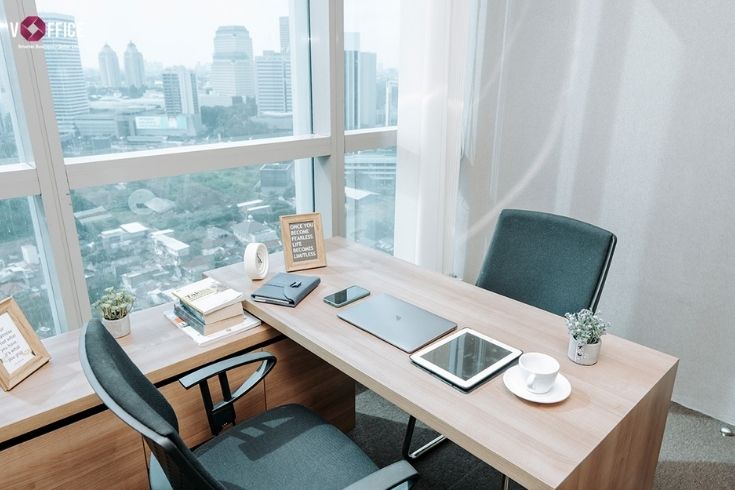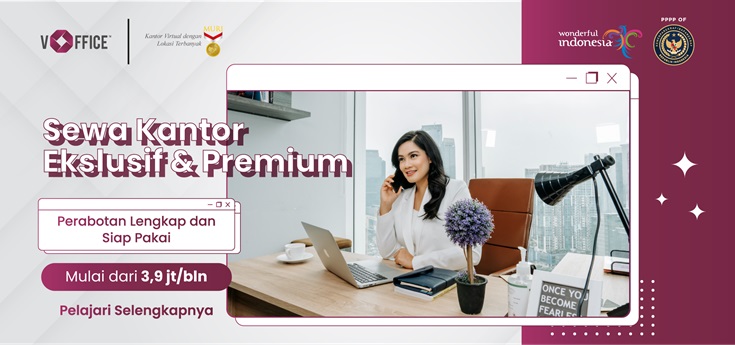Currently, business owners face an important decision: should their business maintain a physical office, or switch to a remote work model? This decision is not just about the workplace, but also involves productivity, efficiency, and the work culture they wish to establish.
Below are some pros and cons of working in an office (work from office/WFO) that can help you determine the best work model for your company.
Read Also: Characteristics of Modern Offices Every Business Owner Should Know
Advantages of Working in an Office


Here are some advantages of office-based work policies (WFO) that business owners may want to consider:
More Effective Collaboration
Working in an office facilitates face-to-face interactions, making collaboration between teams more effective. Direct discussions, brainstorming, and problem-solving can occur quickly, without the limitations that often arise in online communication.
Building Company Culture and Loyalty
A physical office allows a company to build a strong work culture. Physical presence encourages social interaction and strengthens employees’ connection to the company’s values and vision, potentially increasing their loyalty.
Productivity Monitoring
In an office, managers or business owners can more easily monitor employees’ productivity in person. Physical presence also helps employees stay focused on tasks, as they are in an environment designed for work.
Access to Facilities and Resources
Offices usually provide the necessary facilities to support productivity, such as meeting rooms, pantries, and stable internet access. Additionally, office equipment and technology are often readily available and ready to use.
Read Also: How to Choose an Office Location: 7 Best Strategies for Business
Disadvantages of Working in an Office
Here are some disadvantages of WFO policies that business owners may want to consider:
High Operational Costs
Renting and managing a physical office requires significant costs. Rent, utilities, building maintenance, and office furniture are recurring expenses that must be considered, especially for small or new businesses.
Travel Time and Costs
Employees need to spend time and money commuting to the office every day. In large cities, traffic jams can add stress and fatigue, which ultimately affects productivity.
With travel time and costs, business owners may also need to provide compensation for their employees. This can add extra costs that may burden the business.
Recruitment Limitations
If employees are required to work in the office, companies may need to limit recruitment to candidates living near the office location. This could reduce the opportunity to hire top talent from other areas.
Health Risks
Gathering in a closed space, such as an office, increases the risk of disease transmission, especially during flu seasons or pandemics. If an employee falls ill, team productivity can be disrupted.
Read Also: 7 Essential Office Facilities for Work
Considerations for Business Owners


To determine whether your business should implement a work-from-office policy and maintain a physical office, there are several key factors to consider:
Type of Work
If the work requires specific tools or frequent face-to-face interaction, having a physical office may be crucial. However, if most tasks can be done online, a remote work model may be more effective.
Company Budget
Consider the operational costs of the office compared to the potential benefits from more closely monitored productivity. Make sure your company can sustain the office costs in the long term.
Ease of Recruiting Talent
If you want to recruit talent from various regions, a remote work model could open up broader opportunities. On the other hand, if your focus is on a local team, a physical office could be a relevant option.
Hybrid Policies
A hybrid work model (a combination of office and remote work) is also worth considering. With this model, employees can come to the office on specific days and work from home on others. This approach offers flexibility that benefits both employees and the company.
Each work model has its own advantages and disadvantages. To maximize efficiency and productivity, it is important for business owners to tailor their choice to the specific needs of their company. If a physical office is considered essential for building company culture and fostering more intensive collaboration, maintaining an office is the right decision. However, if cost-efficiency and flexibility are priorities, a remote or hybrid work model might be a more ideal solution.
Read Also: 14 Advantages of Renting an Office Over Buying
For business owners who want to maintain a physical office while saving on operational costs, you can rely on office rental services from vOffice.
vOffice offers complete modern office service packages, backed by an ISO 9001 certification and a customer satisfaction guarantee. With experience serving over 50,000 clients across Indonesia, vOffice is ready to help entrepreneurs run their businesses without the hassle of office management.
Check out the various strategic locations for office/serviced office rental in Indonesia from vOffice here:
- Office Rental Jakarta
- Office Rental Tangerang
- Office Rental Bali
- Office Rental Surabaya
- Office Rental Bekasi
- Office Rental Medan
- Coworking Space Jakarta
- Coworking Space Tangerang
- Coworking Space Bali
- Coworking Space Surabaya
- Coworking Space Bekasi
- Coworking Space Medan
Contact us now for more information.
Meanwhile, vOffice also offers virtual office services for those who prefer to implement remote work.
By renting a virtual office from vOffice, your business will get a strategic address and the freedom to work from over 40 locations across Indonesia, all at a much lower cost than renting a physical office.
Check out vOffice’s virtual office locations:
- Virtual Office Jakarta
- Virtual Office Tangerang
- Virtual Office Bali
- Virtual Office Surabaya
- Virtual Office Bekasi
- Virtual Office Medan
So, what are you waiting for? Get the best office solution for your business by relying on vOffice’s services. Contact us now for more information.












